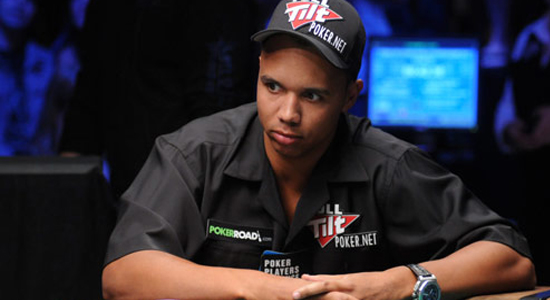The week in pictures: October 7th -13th, 2014
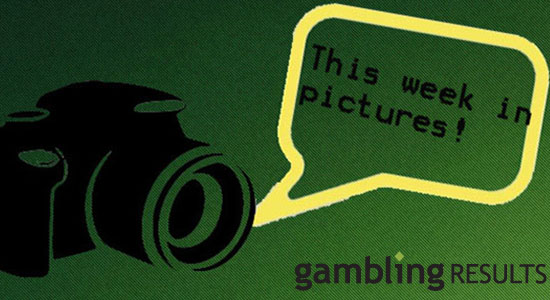
The week between October 7th and 13th was another busy week around the globe, therefore plenty of news. Good news first:
Formula 1 made a comeback in Russia after 100 years. The Nobel Prize for peace was awarded to Kailash Satyarthi and Malala Yousafzai and the Honorary Dame Grand Cross was awarded to Angelina Jolie by the Queen Elisabeth II of Great Britain.
Moving onto the bad news, another country leader made the news by simply ‘showing up’; Kim Jong Un has made his first public appearance in 40 days. Awful news came from the health sector: a patient diagnosed with Ebola died in the US and another one just got infected in Spain. In Africa, hundreds are still dying. People have died in India as well due to Cyclone Hudhud and in Hong Kong, protesters were still marching for democracy.
The gambling news were interesting as well. Let’s take a look at the pics, first!
1. Singapore failed at choosing words in the campaign against gambling but succeed in banning gambling activities.

2. The Trump name shall only be associated with ‘high standards of luxury’. It was decided in court that the famous surname will be removed from Trump Plaza and Trump Taj Mahal, now tapped out casinos.
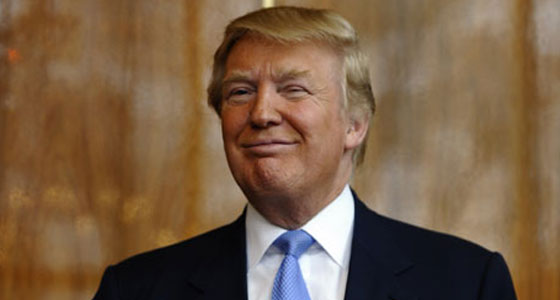
3. Phil Ivey’s case of edge-sorting and exploiting casino’s failures was declared cheating, in court. The poker player will not have access to his winnings.
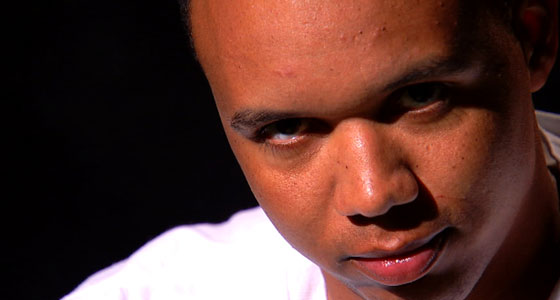
4. Floyd Mayweather showed everybody that he is not only a good sportsman, but also a good sports bettor. And a very, very rich man.
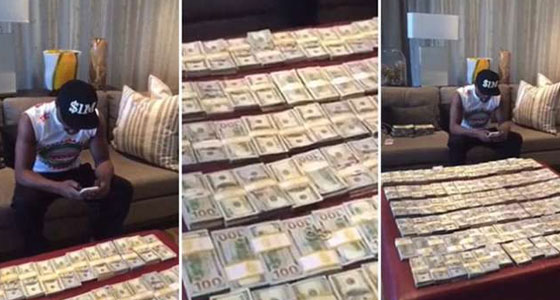
5. New and stricter gambling laws are expected in the Czech Republic. Foreign gambling operators are welcomed as well in a hope to boost tax revenues.
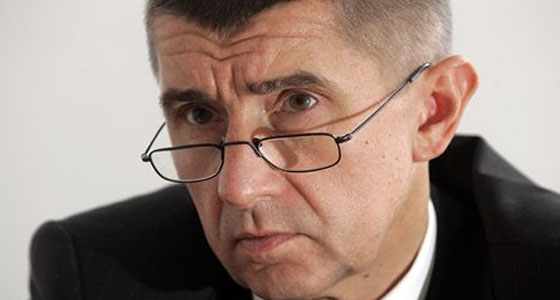
6. New gambling laws, new taxes in the UK as well. The Court granted ‘green light’ for implementing the anticipated legal amendments, despite Gibraltar Betting and Gaming Association objections.
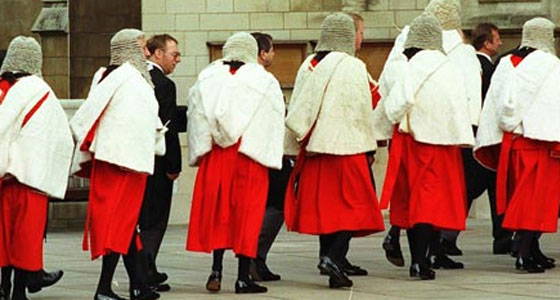
7. Ka-Ching! 350 people bought vintage gambling machines worth $2,381,700 at the Victorian Casino Antiques auction. The unique gambling items once belonged to the iconic Las Vegas Harrah’s Hotel and Casino.
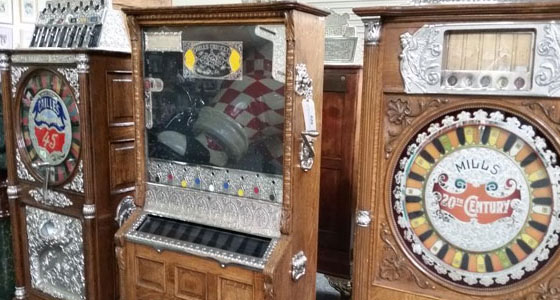
That was it for the past seven days. If you want to stay informed with the latest gambling news, read the Gambling Results’ top stories section!



The week between October 7th and 13th was another busy week around the globe, therefore plenty of news. Good news first:
Formula 1 made a comeback in Russia after 100 years. The Nobel Prize for peace was awarded to Kailash Satyarthi and Malala Yousafzai and the Honorary Dame Grand Cross was awarded to Angelina Jolie by the Queen Elisabeth II of Great Britain.
Moving onto the bad news, another country leader made the news by simply ‘showing up’; Kim Jong Un has made his first public appearance in 40 days. Awful news came from the health sector: a patient diagnosed with Ebola died in the US and another one just got infected in Spain. In Africa, hundreds are still dying. People have died in India as well due to Cyclone Hudhud and in Hong Kong, protesters were still marching for democracy.
The gambling news were interesting as well. Let’s take a look at the pics, first!
1. Singapore failed at choosing words in the campaign against gambling but succeed in banning gambling activities.

2. The Trump name shall only be associated with ‘high standards of luxury’. It was decided in court that the famous surname will be removed from Trump Plaza and Trump Taj Mahal, now tapped out casinos.

3. Phil Ivey’s case of edge-sorting and exploiting casino’s failures was declared cheating, in court. The poker player will not have access to his winnings.

4. Floyd Mayweather showed everybody that he is not only a good sportsman, but also a good sports bettor. And a very, very rich man.

5. New and stricter gambling laws are expected in the Czech Republic. Foreign gambling operators are welcomed as well in a hope to boost tax revenues.

6. New gambling laws, new taxes in the UK as well. The Court granted ‘green light’ for implementing the anticipated legal amendments, despite Gibraltar Betting and Gaming Association objections.

7. Ka-Ching! 350 people bought vintage gambling machines worth $2,381,700 at the Victorian Casino Antiques auction. The unique gambling items once belonged to the iconic Las Vegas Harrah’s Hotel and Casino.

That was it for the past seven days. If you want to stay informed with the latest gambling news, read the Gambling Results’ top stories section!


Ivey Not Entitled to His GBP7.7 Million in Winnings, Judge Rules
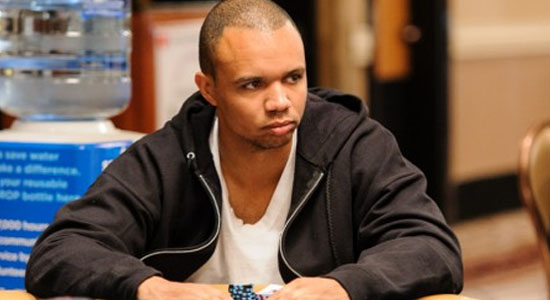
Ivey’s lawyers weren’t convincing enough when they argued that losing GBP7.7 million in just a few days was the casino’s “mistake”.
The court denied Phil Ivey his GBP7.7 million winnings, remained unpaid after a casino accused him of cheating to get the money. The professional poker player admitted he used a technique called “edge sorting” to win at the baccarat table, but claimed casino employees were negligent which means losing all that money was the company’s “mistake”.
After London’s Crockfords Club realized that Ivey had taken advantage of a flaw in the playing cards, the casino refused to pay out. Ivey sued the company to get his prize, but the latest gambling news announced he lost the case.
Irish Examiner: Poker player loses €9.7m casino challenge
The 38-year-old American poker pro won the money in august 2012, by playing Punto Banco, a version of baccarat. After four sessions where he won GBP7.7 million, the Mayfair casino returned his GBP1 million stake and said it would wire him the rest of the money. Phil Ivey returned to the US only to find that his money never arrived.
The Crockfords Club is owned by Genting Casinos UK, a gambling operator which has more than 40 casinos across the country. Company representatives said the technique used by Ivey was not a legitimate strategy, which is why they had no liability to him. Edge-sorting is used to give the player a “first card advantage”.
The lawyers who defended the casino said Ivey’s conduct defeated the essential premise of baccarat. Therefore, they argued, there was no gaming contract or cheating.
“Crockfords is pleased with the judgement of the High Court today supporting its defense of a claim by Mr Ivey,” a spokesman for the casino told reporters. “It is our policy not to discuss our clients’ affairs in public and we very much regret that proceedings were brought against us.”
Ivey said through a spokesman: “I am obviously disappointed with this judge’s decision. As I said in court, it is not my nature to cheat and I would never do anything to risk my reputation. I am pleased that the judge acknowledged in court that I was a truthful witness.”
The poker player’s lawyers were refused permission to appeal the decision. However, they can renew their application to the Court of Appeal directly.
London Evening Standard: Poker champion loses case against London casino over £7.7m winnings
Phil Ivey, who is known for his excellent poker results, said he would never jeopardize his reputation by cheating at a casino.
“We observe the unwritten doctrine: how do I find a legal way to beat the house? Any method that could amount to cheating would breach the doctrine and cause you to be ostracized by your fellow players – we are all very careful to stay the right side of the line and we discuss advantage play strategies at length,” he said.
“I believe that what we did was a legitimate strategy and we did nothing more than exploit Crockfords’ failures to take proper steps to protect themselves against a player of my ability. Clearly today the judge did not agree,” Ivey added.
His counsel Richard Spearman explained to the court that edge-sorting meant using information found on the backs of the cards and making certain requests during the game, in order to gain an advantage. Besides, the cards were chosen by the casino and staff could have refused Ivey’s requests at any time. The poker pro said his integrity was “infinitely more important than a big win”, and added that he sued the casino to prove that he was “unjustly treated”.
On the other hand, Christopher Pymont, who represented the casino, argued that the casino did not regard Ivey as an advantage player at that time. Instead, they thought of him as an old VIP customer who they could trust.
The Guardian: Top poker player Phil Ivey loses court battle over £7.7m winnings
The judge mentioned in his ruling that the case turned on whether Ivey cheated or not, adding that the poker player was not entitled to his winnings if the obtained them in an unfair manner.
“What Mr Ivey and Ms Sun did was to persuade the croupier to turn some of the cards in the dealing shoe to permit them to know that they were or were very likely to be sevens, eights or nines, and in circumstances where she did not realize she had done so – and, if she had, would have immediately stopped play,” the court ruling said.
The judge said Ivey did not just take advantage of a simple error, but did it by using the dealer “as his innocent agent or tool”. Furthermore, the judge added, the poker player was aware that neither the croupier, not her superiors knew what the consequences of her actions would be when she turned the cards around, as per his request.
“This is, in my view, cheating for the purpose of civil law,” the judge concluded before dismissing the case.

Ivey’s lawyers weren’t convincing enough when they argued that losing GBP7.7 million in just a few days was the casino’s “mistake”.
The court denied Phil Ivey his GBP7.7 million winnings, remained unpaid after a casino accused him of cheating to get the money. The professional poker player admitted he used a technique called “edge sorting” to win at the baccarat table, but claimed casino employees were negligent which means losing all that money was the company’s “mistake”.
After London’s Crockfords Club realized that Ivey had taken advantage of a flaw in the playing cards, the casino refused to pay out. Ivey sued the company to get his prize, but the latest gambling news announced he lost the case.
Irish Examiner: Poker player loses €9.7m casino challenge
The 38-year-old American poker pro won the money in august 2012, by playing Punto Banco, a version of baccarat. After four sessions where he won GBP7.7 million, the Mayfair casino returned his GBP1 million stake and said it would wire him the rest of the money. Phil Ivey returned to the US only to find that his money never arrived.
The Crockfords Club is owned by Genting Casinos UK, a gambling operator which has more than 40 casinos across the country. Company representatives said the technique used by Ivey was not a legitimate strategy, which is why they had no liability to him. Edge-sorting is used to give the player a “first card advantage”.
The lawyers who defended the casino said Ivey’s conduct defeated the essential premise of baccarat. Therefore, they argued, there was no gaming contract or cheating.
“Crockfords is pleased with the judgement of the High Court today supporting its defense of a claim by Mr Ivey,” a spokesman for the casino told reporters. “It is our policy not to discuss our clients’ affairs in public and we very much regret that proceedings were brought against us.”
Ivey said through a spokesman: “I am obviously disappointed with this judge’s decision. As I said in court, it is not my nature to cheat and I would never do anything to risk my reputation. I am pleased that the judge acknowledged in court that I was a truthful witness.”
The poker player’s lawyers were refused permission to appeal the decision. However, they can renew their application to the Court of Appeal directly.
London Evening Standard: Poker champion loses case against London casino over £7.7m winnings
Phil Ivey, who is known for his excellent poker results, said he would never jeopardize his reputation by cheating at a casino.
“We observe the unwritten doctrine: how do I find a legal way to beat the house? Any method that could amount to cheating would breach the doctrine and cause you to be ostracized by your fellow players – we are all very careful to stay the right side of the line and we discuss advantage play strategies at length,” he said.
“I believe that what we did was a legitimate strategy and we did nothing more than exploit Crockfords’ failures to take proper steps to protect themselves against a player of my ability. Clearly today the judge did not agree,” Ivey added.
His counsel Richard Spearman explained to the court that edge-sorting meant using information found on the backs of the cards and making certain requests during the game, in order to gain an advantage. Besides, the cards were chosen by the casino and staff could have refused Ivey’s requests at any time. The poker pro said his integrity was “infinitely more important than a big win”, and added that he sued the casino to prove that he was “unjustly treated”.
On the other hand, Christopher Pymont, who represented the casino, argued that the casino did not regard Ivey as an advantage player at that time. Instead, they thought of him as an old VIP customer who they could trust.
The Guardian: Top poker player Phil Ivey loses court battle over £7.7m winnings
The judge mentioned in his ruling that the case turned on whether Ivey cheated or not, adding that the poker player was not entitled to his winnings if the obtained them in an unfair manner.
“What Mr Ivey and Ms Sun did was to persuade the croupier to turn some of the cards in the dealing shoe to permit them to know that they were or were very likely to be sevens, eights or nines, and in circumstances where she did not realize she had done so – and, if she had, would have immediately stopped play,” the court ruling said.
The judge said Ivey did not just take advantage of a simple error, but did it by using the dealer “as his innocent agent or tool”. Furthermore, the judge added, the poker player was aware that neither the croupier, not her superiors knew what the consequences of her actions would be when she turned the cards around, as per his request.
“This is, in my view, cheating for the purpose of civil law,” the judge concluded before dismissing the case.
Crockfords Says Ivey Cheated, but the Poker Pro Wants his GBP7.7 Million
A British gambling venue is refusing to pay poker player Phil Ivey his GBP7.7 million in winnings, claiming that he won by cheating.
Although a talented poker player, American gambler Phillip Ivey doesn’t shy away from other casino games either. Like high-stake baccarat, for example. The game brought him almost GBP8 million in winnings in August 2012, when he risked as much as GBP1 million of his own money at a casino in London.
The Crockfords club – the venue where Ivey won the money over his two-day visit – has refused to pay out claiming that the poker player had cheated and duped the croupier, with the help of his companion Cheung Yin Sun.
The American gambler responded by slapping the casino with a lawsuit. While admitting that he had used a technique known as edge sorting, which allows players to predict the order of the cards, Ivey and his lawyers firmly believe that this is nothing but a legitimate strategy that casinos can guard against.
Mirror Online: Casino won’t pay out £7.7MILLION winnings to ‘cheating’ poker star Phillip Ivey
Richard Spearman, who represents the professional poker player, said Ivey should not be held responsible for the casino’s “mistake”.
“The technique of edge sorting involves nothing more than using information that is available to any player by viewing the backs of the cards… and making requests of the casino, which it is open to the casino to accept or refuse, as to the manner in which play is conducted.”
Spearman claims that it was the gambling venue’s mistake that this turned into an advantage for Ivey, while Christopher Pymont, who represents the casino, continued to say the scheme was quite possibly “criminal”.
According to the latest gambling news, the barrister accused the poker player of using his companion to cheat. Cheung Yin Sun allegedly spoke to the dealer in Cantonese to help keep the scheme “covert” from the rest of the staff, who spoke English.
The casino staff examined the CCTV footage, interrogated the staff, and then decided not to send Ivey the money.
Belfast Telegraph: Champion poker player Phil Ivey ‘stitched up’ London casino in £7.7m winning streak, court hears
One of the best poker players in the world, Phil Ivey, was accused of having “stitched up” a reputable London casino by taking advantage of a flaw in playing cards. The poker pro sued the gambling venue, which refused to pay him the GBP7.7 million he had won in two days.
Ivey allegedly created an “air of superstition”. He insisted on wearing a lucky hat, picked a lucky Asian card dealer, and a special pack of cards. While the game of baccarat requires little skill, all this helped him tip the odds in his favor, said the casino management.
Ivey admitted that he turned a minor flaw in the cards to his advantage, but says the casino did not take the proper security measures and went along with all his requests without questioning them. This is why he exploited the casino’s failures.
“Putting it bluntly, he played, he won and they ought to pay up,” said Richard Spearman, his counsel.
Casino staff picked up on Ivey’s unusual behavior after he asked the dealer to turn around some of the cards, “like that made any difference”. But employees figured it was nothing but a superstition. “It did make a difference. They just didn’t realize,” Spearman explained.
The counsel added that Ivey’s winning streak could have been stopped at any moment simply by changing the cards, or increasing the security on the dealer, but the casino failed to take these precautions. The customer “regards this as entirely fair play,” Spearman said, adding: “If a casino fouls up from start to finish that’s the gamblers good fortune.”
On the other hand, Christopher Pymont, counsel for the casino, considers the gambler’s actions to be “highly immoral and dishonest”. “The whole point is to stitch up the casino, to fix it, when you know it’s in ignorance of what you’re doing,” he argued.
The case is expected to last a week.
Daily Mail: Nine-time world poker champion Phil Ivey accused of cheating Atlantic City casino out of $9.6MILLION ‘using defective card trick’
This is not the first time Phil Ivey has taken advantage of defective cards to turn the odds in his favor, at the same table game. A casino in Atlantic City has sued the professional poker player after he won $9.6 million, claiming that he got the money by cheating.
Ivey and an associate allegedly exploited a defect in cards to win the money, on four occasions between April and October 2012. The cards were manufactured by Gemaco Inc., a company from Kansas City, and were defective because they didn’t have a uniform pattern on the back.
According to the lawyers who represent the gambling venue, the technique of edge sorting is forbidden under New Jersey gambling laws. Ivey and his companion allegedly instructed a dealer to flip cards in particular ways, so they could tell whether it was a desirable card or not.
A British gambling venue is refusing to pay poker player Phil Ivey his GBP7.7 million in winnings, claiming that he won by cheating.
Although a talented poker player, American gambler Phillip Ivey doesn’t shy away from other casino games either. Like high-stake baccarat, for example. The game brought him almost GBP8 million in winnings in August 2012, when he risked as much as GBP1 million of his own money at a casino in London.
The Crockfords club – the venue where Ivey won the money over his two-day visit – has refused to pay out claiming that the poker player had cheated and duped the croupier, with the help of his companion Cheung Yin Sun.
The American gambler responded by slapping the casino with a lawsuit. While admitting that he had used a technique known as edge sorting, which allows players to predict the order of the cards, Ivey and his lawyers firmly believe that this is nothing but a legitimate strategy that casinos can guard against.
Mirror Online: Casino won’t pay out £7.7MILLION winnings to ‘cheating’ poker star Phillip Ivey
Richard Spearman, who represents the professional poker player, said Ivey should not be held responsible for the casino’s “mistake”.
“The technique of edge sorting involves nothing more than using information that is available to any player by viewing the backs of the cards… and making requests of the casino, which it is open to the casino to accept or refuse, as to the manner in which play is conducted.”
Spearman claims that it was the gambling venue’s mistake that this turned into an advantage for Ivey, while Christopher Pymont, who represents the casino, continued to say the scheme was quite possibly “criminal”.
According to the latest gambling news, the barrister accused the poker player of using his companion to cheat. Cheung Yin Sun allegedly spoke to the dealer in Cantonese to help keep the scheme “covert” from the rest of the staff, who spoke English.
The casino staff examined the CCTV footage, interrogated the staff, and then decided not to send Ivey the money.
Belfast Telegraph: Champion poker player Phil Ivey ‘stitched up’ London casino in £7.7m winning streak, court hears
One of the best poker players in the world, Phil Ivey, was accused of having “stitched up” a reputable London casino by taking advantage of a flaw in playing cards. The poker pro sued the gambling venue, which refused to pay him the GBP7.7 million he had won in two days.
Ivey allegedly created an “air of superstition”. He insisted on wearing a lucky hat, picked a lucky Asian card dealer, and a special pack of cards. While the game of baccarat requires little skill, all this helped him tip the odds in his favor, said the casino management.
Ivey admitted that he turned a minor flaw in the cards to his advantage, but says the casino did not take the proper security measures and went along with all his requests without questioning them. This is why he exploited the casino’s failures.
“Putting it bluntly, he played, he won and they ought to pay up,” said Richard Spearman, his counsel.
Casino staff picked up on Ivey’s unusual behavior after he asked the dealer to turn around some of the cards, “like that made any difference”. But employees figured it was nothing but a superstition. “It did make a difference. They just didn’t realize,” Spearman explained.
The counsel added that Ivey’s winning streak could have been stopped at any moment simply by changing the cards, or increasing the security on the dealer, but the casino failed to take these precautions. The customer “regards this as entirely fair play,” Spearman said, adding: “If a casino fouls up from start to finish that’s the gamblers good fortune.”
On the other hand, Christopher Pymont, counsel for the casino, considers the gambler’s actions to be “highly immoral and dishonest”. “The whole point is to stitch up the casino, to fix it, when you know it’s in ignorance of what you’re doing,” he argued.
The case is expected to last a week.
Daily Mail: Nine-time world poker champion Phil Ivey accused of cheating Atlantic City casino out of $9.6MILLION ‘using defective card trick’
This is not the first time Phil Ivey has taken advantage of defective cards to turn the odds in his favor, at the same table game. A casino in Atlantic City has sued the professional poker player after he won $9.6 million, claiming that he got the money by cheating.
Ivey and an associate allegedly exploited a defect in cards to win the money, on four occasions between April and October 2012. The cards were manufactured by Gemaco Inc., a company from Kansas City, and were defective because they didn’t have a uniform pattern on the back.
According to the lawyers who represent the gambling venue, the technique of edge sorting is forbidden under New Jersey gambling laws. Ivey and his companion allegedly instructed a dealer to flip cards in particular ways, so they could tell whether it was a desirable card or not.















